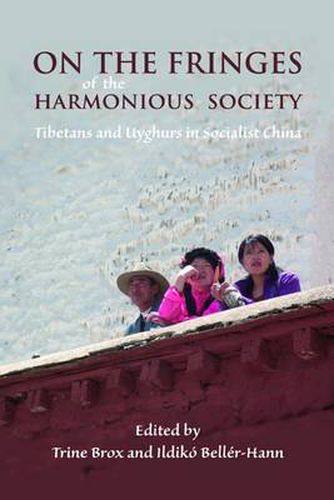Readings Newsletter
Become a Readings Member to make your shopping experience even easier.
Sign in or sign up for free!
You’re not far away from qualifying for FREE standard shipping within Australia
You’ve qualified for FREE standard shipping within Australia
The cart is loading…






Since 1949, Tibetans and Uyghurs generally have been perceived as the two most problematic members of the PRC’s great family of peoples and been the targets of ‘carrot and stick’ measures designed to facilitate their integration into the PRC. In recent years, a solution to the problem of Xinjiang and the Tibet has been sought in accelerated economic development, yet this is perceived by both groups with great suspicion. Addressing this situation, the volume explores the arenas of socio-economic development and market liberalization, popular culture, urban planning and relocation, environment and ecological migration, civil society, education and language, ethno-nationalism, as well as religious policies and practices. It is especially topical at a time when fieldwork in the regions where these two minorities live remains extremely difficult and politically sensitive.
$9.00 standard shipping within Australia
FREE standard shipping within Australia for orders over $100.00
Express & International shipping calculated at checkout
Since 1949, Tibetans and Uyghurs generally have been perceived as the two most problematic members of the PRC’s great family of peoples and been the targets of ‘carrot and stick’ measures designed to facilitate their integration into the PRC. In recent years, a solution to the problem of Xinjiang and the Tibet has been sought in accelerated economic development, yet this is perceived by both groups with great suspicion. Addressing this situation, the volume explores the arenas of socio-economic development and market liberalization, popular culture, urban planning and relocation, environment and ecological migration, civil society, education and language, ethno-nationalism, as well as religious policies and practices. It is especially topical at a time when fieldwork in the regions where these two minorities live remains extremely difficult and politically sensitive.